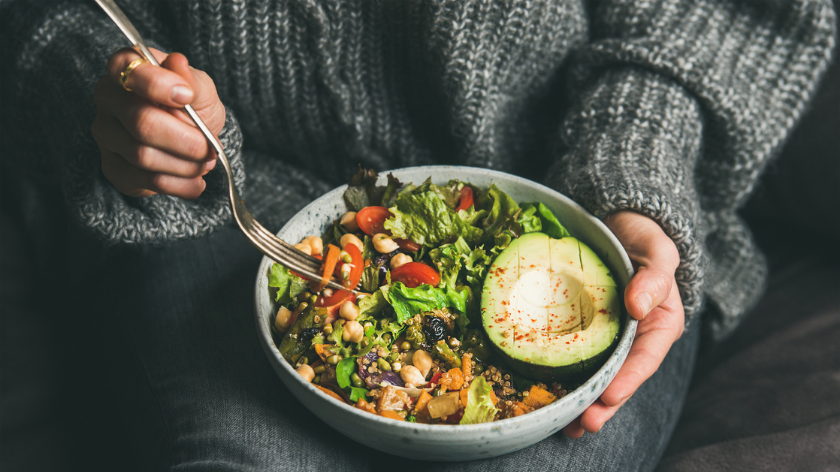Today marks World Obesity Day and this year’s global theme is a call for everyone to act.
Over 800 million people around the world currently live with obesity, with millions more at risk – and childhood obesity is expected to rise by 60% over the next decade, reaching 250 million by 2030.
This year, consider adding more plant-based foods to your diet. There’s strong evidence that links an increased intake of vegetables and fruit to the reduced risk of lifestyle diseases, including obesity-linked diseases. Focus on consuming more whole, plant foods, and less meat and highly processed foods. Keep in mind that frozen or canned fruits and veggies are also an excellent and equally nutritious alternative if you don’t have easy access to fresh produce, or the produce you’re seeking is out of season.
Can eating more plants help save the world?
Data supporting the planetary health diet claims that the universal adoption of a planetary health diet would help avoid severe environmental degradation and prevent approximately 11 million human deaths annually.
The latest EAT-Lancet report concluded that this data is “both sufficient and strong enough to warrant immediate action.” The report goes on to state: “Food will be a defining issue of the 21st century. The Commission shows that feeding 10 billion people a healthy diet within safe planetary boundaries for food production by 2050 is both possible and necessary.”
The proof is in the (fruit) pudding
With plant-based menus and foods becoming more common, tasty, and accessible both in grocery stores and at restaurants, planning and normalizing plant-based meals every day is a single step we can all take to transform our own and our family’s health.
“Have these five” and “Eat these in moderation” when deciding what to eat every day:
| 5 every day | 5 in moderation |
| 1. Vegetables and fruit: A portion of veg is two hands, cupped together and a fruit portion is one cupped hand. Have at least 5 veg and fruit portions a day.
2. Beans, chickpeas, or lentils: Eat a fist-sized amount a day. 3. Nuts and seeds: Have a cupped hand’s worth a day. 4. Wholegrains: Eat a fist-sized amount of oats, brown rice, quinoa, bulgur wheat at each meal. 5. Water: Have water that’s plain, sparkling, or infused with fresh fruit or herbs. Drink according to thirst. |
1. Sugary drinks: fruit juice, fizzy drinks, and sugar added to tea and coffee.
2. Processed meats: sausages, cold meats such as salami and ham, and bacon. 3. Salty snacks: Chips and savory crackers. 4. Sugary foods: Biscuits, sweets, cake, ice cream, chocolate and sweetened breakfast cereals. 5. Deep-fried highly processed foods: pies, fish fingers, chicken nuggets, and burgers.
|
Source: Adapted from the research organisation Blue Zones.






